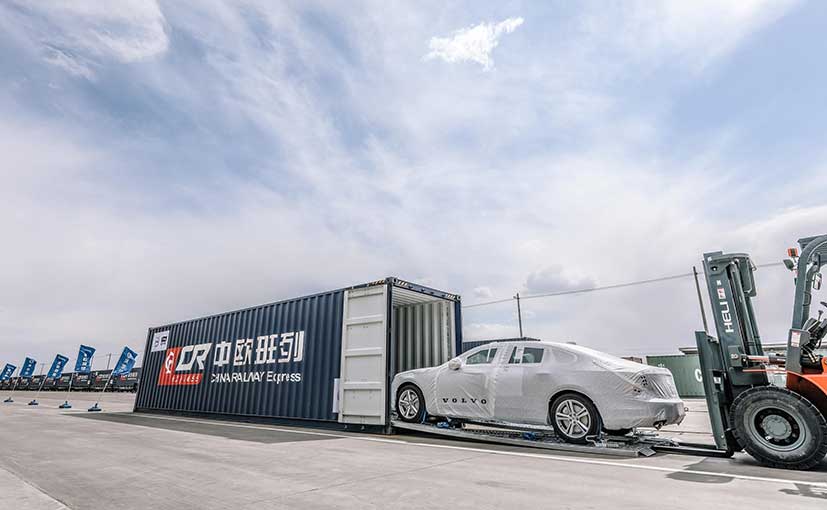
Volvo Cars recently announced it has shipped the first batch of China-built S90 sedans to Europe by train, thus becoming the first car maker in the world to export China-made cars to Europe by train via the country’s new ‘One Belt, One Road’ trade initiative. The Volvo S90 sedans, manufactured at the company’s Daqing plant in China, have been transported to Belgium by the means of the China-Europe freight train route. The route has reduced the time needed to transport vehicles to Europe by two thirds compared with the naval route. The first batch of the China-made Volvo S90 sedans will arrive at a distribution centre in Zeebrugge, Belgium on 31 May.
It may be interesting to note Volvo was the first Western carmaker to export a premium China-made car to the US in 2015 with the S60 Inscription. In November 2016, the Swedish carmaker started manufacturing high-end versions of its S90 premium sedan in Daqing for global exports, and will soon be building all S90 vehicles in the factory for global export.
Each of these Volvo-dedicated trains carry around 225 Volvo cars
The freight train connection ties Volvo’s global manufacturing and logistics strategy to the multi-billion euro trade flows between China and Europe and the so-called One Belt, One Road initiative that seeks to resurrect the age-old Silk Road trade route for a new era of global trade. In addition to reduced waiting times for customers, the train route also contributes to the environmental impact of logistics operations. As compared to sea transport, using train for transportation reduces CO2 emissions per tonne/km by a third over the same distance. In this case, the savings will be even higher thanks to the shorter distance.
Volvo S90 sedan is manufactured at the company’s Daqing plant in China
Each of the Volvo-dedicated trains traveling between Daqing and Zeebrugge carry around 225 Volvo cars, which are transported in specially designed containers. One container holds three cars at different angles in order to maximise the use of space available inside. Furthermore, special fixtures ensure that the cars are fastened during transport and do not move. Though these trains will depart from Daqing once a week, the company plans to increase this frequency in accordance with growing volumes.
[“source-ndtv”]